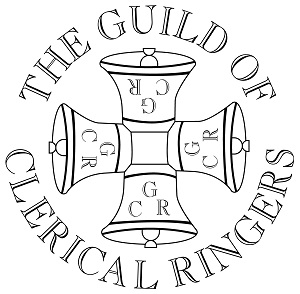ST PETER AND ST PAUL
A survey taken some years back informed me that there are around 299 churches with a joint dedication to St Peter and St Paul. On the 29th of June (this year it is on a Thursday) the Church of England celebrates the feast day of these two highly important apostles of the early church and over this weekend many of the churches with a dedication to these two saints will be holding their patronal festivals – and ringing will joyfully add to the celebration in its own unique way.
The 29th of June marks the martyrdom of both Peter and Paul in Rome, following their imprisonment, which, by tradition, took place on the same day for both in the year 67 following the likely instruction of the infamous Emperor Nero. Saint Peter (sometimes known as Cephas), who travelled alongside Jesus as one of the twelve disciples, became one of the principal leaders of the early Christian Church. We learn much about Peter, his character, strengths, and shortcomings in the gospels and in St Luke’s Acts of the Apostles. Paul, earlier known as Saul, after his dramatic Damascus Road conversion to Christianity, became probably the foremost of the apostles to take the gospel out across the known first-century world. In the New Testament some thirteen books, or letters, written to the new and widely spread Christian churches, are attributed to him. It may have been the case that Peter and Paul did not always see eye to eye over the requirements for new Christians – whether or not in Peter’s case initially those new to the faith in the Gentile world should still follow certain prescriptions of the Jewish Law; or as in Paul’s case, new converts should be wholly free from the Law. If you are interested more in this tension, then take a look at Acts Chapter 15 and Paul’s letter to the Galatian Church, Chapter 2. Either way, any difficulties arising appear to have been resolved satisfactorily (recorded by Luke in Acts 15) through discussion at a Council held in Jerusalem where Peter and Paul were present in the company of an assembly of other key apostles.
This made me think about relationships between ringers in the tower and the stresses or even the occasional outright conflict that can occur where neither party will give way. Or it may be a difficulty that arises between the tower and the local church leaders where neither side properly understands the traditions and motivations of the other. If you have been ringing long enough then probably most of us, I imagine, will have sorry tales to recount. Disputes and clashes can only be resolved, hopefully, by the equivalent of a ‘Jerusalem Council’: that is taking the time to gather and talk, understand, and reach an agreement. All pretty obvious really. And on that pertinent note, I can recommend the recent publication The Voice of the Church where amongst many other things useful tips are provided for establishing good relationships between ringers and church leaders. And further, at this current (Paul and) Petertide, when traditionally many new curates will be ordained up and down the country to serve their titles in our Churches, perhaps give them a copy to assist in their appreciation and grasp of what we ringers do… and invite them to meet us as soon as possible.
Jonathan Rose
